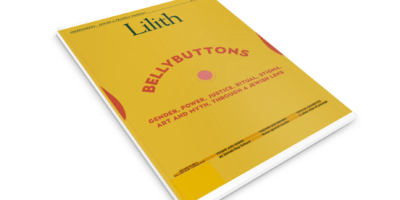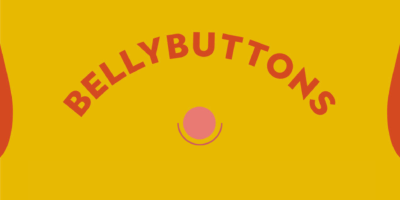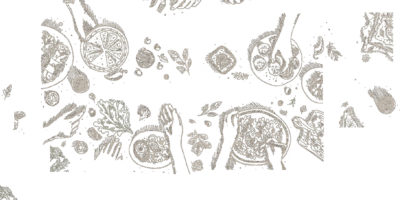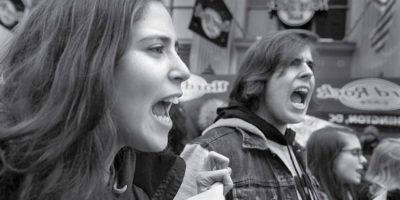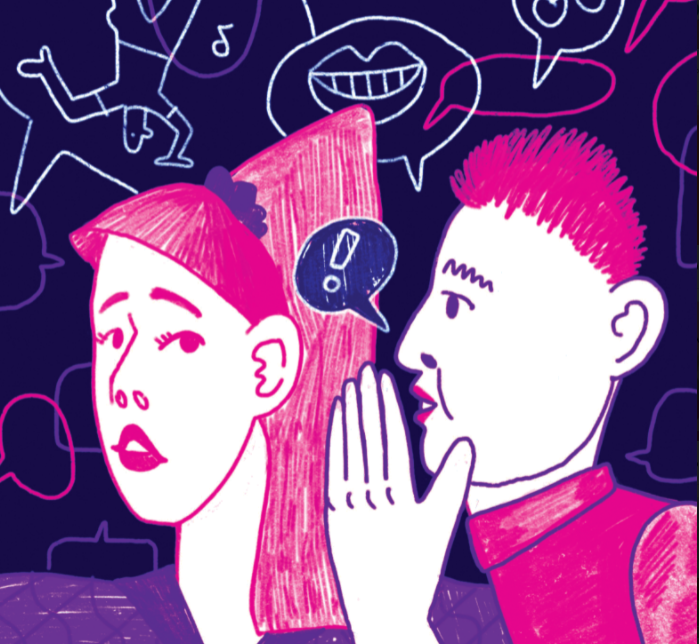
Yeshivas, Day Schools, and LGBT Kids
*All names of students under 18 have been replaced by pseudonyms, to protect their privacy.
By the time she was in fifth grade, Sarah*, a student at a Modern Orthodox day school in New York, knew she was queer. Though her parents had always been open-minded and supportive, Sarah was all but certain she would have to keep this part of herself a secret until college. “If I said my nighttime Shema, I thought I could add in a clause—‘Hey, could I be straight please?’” she remembers.
But a lot has changed since fifth grade. Namely, her Orthodox school has formally recognized its Gender and Sexuality Alliance (GSA). GSA used to stand for gay-straight alliance, but in an attempt to be inclusive of trans and nonbinary identity, many such clubs call themselves Gender and Sexuality alliances.
Though GSAs are par for the course at many American high schools, particularly in the Northeast, having a GSA is no small step for an Orthodox Jewish day school. That’s because most Orthodox interpretations of the Torah prohibit same sex expressions of sexuality.
As a recent alumna of two Jewish day schools myself, I was curious to see how the social upheaval of the last few years had affected my younger peers’ experience, and comfort levels, at school. I interviewed 16 students and found a fairly clear narrative: a new openness from schools, though welcome, is often undermined by bullying, insensitivity from teachers, and, in particular, the presentation of Jewish content that ignores and/or erases LGBTQ+ identity. In particular, the interpretation that being gay is against halakha, or ritual law, is still affirmed in some classrooms. As one student told me: “there is a prevailing assumption that “there’s nobody [queer] in the room, and if there is, it’s good for them to hear [that being gay is against halakha].”
These days, nonprofits like Keshet, an organization that seeks to create Jewish spaces that are inclusive and affirming of LGBTQ+ people, and Eshel, which was started by Orthodox parents of LGBTQ+ kids and young adults, work with Jewish day schools, leading to changes like the formalization of the GSA Sarah belongs to.
Miryam Kabakov, the Executive Director of Eshel, said the organization was founded in 2010 after administrators and teachers at least seven different Jewish day schools signed a document entitled, “Statement of Principles on the Place of Jews with a Homosexual Orientation in the Orthodox Community,” which refers to heterosexual marriage as “the sole legitimate outlet for human sexual expression.” The document makes no mention of trans or nonbinary identities, nor does it acknowledge bisexuality. There have been no public attempts to update this document.
The document is stale, but students’ need is urgent. Indeed, according to a 2018 study in the Journal of Preventive Medicine, young adults who identify as LGBTQ+ and religious are up to 50% more likely to attempt suicide. Until queer students are not only tolerated but also fully supported, protected, and embraced in secular and Jewish contexts alike, hallway homophobia will prevail, and students’ well-being will be in danger.
My recent conversations with students and graduates at Jewish day schools on the East Coast demonstrate that willingness to work with organizations does not in itself lead to the shift in culture that students need in order to feel healthy and supported.
There’s a difference between nominal acceptance and true belonging. Gabe Klapholz, Ramaz High School ’17, came back to his Orthodox school on Manhattan’s Upper East Side recently to speak on a panel organized by Eshel.It was a small improvement over what he describes as “a palpable silence and invisibility” when he was still a student there. “There was no vocabulary available to me. I didn’t know how to describe myself,” he elaborated. Still, a panel isn’t everything: “While panels about queerness work wonders in terms of visibility, they problematize queerness,” Klapholz said. A panel suggests that there are a range of acceptable opinions on an issue. What’s more, he says, Ramaz did little to promote this panel, which was not part of regular school programming.
Some of these hurdles are structural. As Eshel’s Kabakov pointed out, there are concerns for the privacy and safety of LGBTQ+ students that prevent organizations like Eshel from checking in with students about how their school has implemented or not implemented Eshel’s suggestions.
Still, over the past two years, social media has done some of the personal outreach that nonprofits can’t do. More and more students have come out as queer, nonbinary, and trans. TikTok, a social media app that is increasingly popular among younger teenagers, plays an important role in showing kids what is possible in terms of self-expression, several students told me.
Rachel, a student from the Melvin J. Berman Academy, an Orthodox high school in Rockville, Maryland, realized she was queer by watching TikToks. “At first, I thought I was just a really good ally, but I kept getting these videos in my feed from bi women realizing they were queer. And I was like, that one resonates,” she said over zoom, whispering to the camera so that nobody else in her home could hear.
Where Judaic Studies classes use a prescriptive framework that outlines an ideal way to behave, TikTok is descriptive; teens tell their own stories in their own words. Inevitably, the inclusive corner of TikTok that presents teens with different modes of self-expression stands in stark contrast to daily life at a Modern Orthodox day school.
For this reason, TikTok was a life raft for Rachel. “At my school, queerness is always talked about in this incredibly intellectualized and abstract manner, like it couldn’t be a reality for anyone in the classroom.” Reflecting on one teacher’s inflexibility on LGBTQ+ sexuality, Rachel described him as “being in a room with closeted queer kids telling them not to be queer.”
Interestingly, Berman Academy is one of the only Orthodox schools with an explicit policy to protect LGBTQ students from discrimination. In fact, Berman’s Head of School Rabbi Dr. Yossi Kastan was deeply apologetic that a student at his school had the experience Rachel describes. “For me, it’s a cop-out to say that LGBTQ identity is something we have to reconcile with halakha [Jewish law] when we don’t hold that standard for other halakhic differences,” he said. “We don’t subdivide the student body based on how they keep Shabbat or treat them any differently,” he said. “I have no right to tell any human being that they do not belong in the Orthodox community. People who identify as LGBTQ have a right to a relationship with God and to the Orthodox community.”
Still, Kastan expressed hesitation about how best to support LGBTQ students in his school, policy-wise, explaining that it should be up to students and their families first and foremost. “I wouldn’t necessarily want to put a school counselor in a position they aren’t equipped to handle,” he said.
The high level of sensitivity and training that teachers need to respond to homophobic bullying is an issue everywhere. At SAR in Riverdale, New York, Administrator and Rabbi Jonathon Kroll kicked off the first GSA meeting ceremoniously with a speech, students told me, but was interrupted by homophobic zoom bombers, who were ignored without comment, and kicked off the zoom. Another student at SAR—we’ll call her Rebecca—said her grade-wide groupchat recently erupted with slurs like “faggot.” In response to this, Principal Rabbi Tully Harcsztark and Kroll called a grade meeting where they expressed, by Rebecca’s account, that they knew that “these issues bring up strong feelings,” and that “group chats are not a healthy space for this sort of dialogue.” Rebecca said this felt to her like a weak response to hate speech, and one that failed to acknowledge the root of the problem: homophobia.
Coming to SAR from Yeshiva University’s High School for Girls, Duly Rosenberg, a member of the class of 2019, was particularly well positioned to pick up on a dynamic of nominal acceptance that doesn’t go deep yet. Rosenberg had left her former school after being outed as gay against her will by a classmate who suggested that because of her queerness she might be a sexual predator.
“When I got to SAR, these girls in my grade would message me and be like ‘we support you, we’re here for you’, but then in the hallway they would ignore me. It was very isolating.” Rosenberg reflected. This treatment mirrored Rosenberg’s experience of the school’s administration, which sanctioned their Gay Straight Alliance—but only quietly. Rosenberg felt she was “begging” to make the GSA “official and public,” in the years before SAR’s administration finally did so.
That decision has made a big difference for students. Hillel Schwab, a 2021 SAR graduate who came out as gay before his freshman year of high school, said he felt embraced by teachers who sent him another queer student “struggling to reconcile his identity with his Judaism.” He said that he is comfortable with a quieter approach to his own self-expression. “I think it’s okay for that not to be the part of my identity that’s emphasized. I want to be an active member of the Orthodox community,” he explained. He also said that the status quo for LGBTQ+ students at SAR has improved dramatically over the last few years, citing the addition of a gender neutral bathroom.
Several students shared that they feel more comfortable participating as themselves in their secular General Studies classes than in Judaics. “The General Studies teachers tend to be the ones with rainbow stickers on their computers or pronouns in their Zoom bios. It just makes me feel more empowered to speak up in those classes,” explained Sarah—the SAR student who used to pray to be straight.
Judaic Studies classes can be a sticking point, even at places like The Heschel School, a pluralistic day school on the Upper West Side of Manhattan. While the institution shows many public displays of allyship, including showcasing Keshet’s stickers and rainbow pins on some faculty and staff lanyards, students nonetheless described a sense of “otherness” in those classes.
Leah, now a senior, came out as a lesbian in the ninth grade. Though she anticipated some of the ignorant comments from her peers, she did not expect any teachers to react inappropriately, at least not outwardly. But a few weeks after coming out, a Judaic studies teacher with whom she had grown close approached her after class and asked, “Are you into girls?” Confused and feeling cornered, Leah managed a “yes.” The teacher responded, “that’s hot,” high fived her, and walked away. Leah puzzled over this interaction for weeks, unsure whether it was collegial and supportive or outright harassment.
Coming from a Modern Orthodox family in the Syrian Jewish community, Leah knew that coming out would be complicated. However, she didn’t anticipate such an inappropriate response from the very teacher in charge of teaching sex ed. “This same teacher, when we were talking about LGBTQ+ people, called it ‘the alphabet soup’ and was almost making fun of sexuality as a spectrum,” she reflected.
Isaac, an out trans classmate of Leah’s, shared that he has a hard time remaining present in Judaic Studies classes. “I just sort of dissociate in Limudei Kodesh (Judaics) classes because I feel like I need to protect myself from what I know could be said.”
As a member of the student government, Leah brought up the use of homophobic slurs in a student government meeting. The response from faculty was to suggest a workshop for the whole grade to discuss the issues at hand rather than repercussions for the students who used the slurs. Leah does not feel that this would accomplish the goal of discouraging the perpetrators from repeating their infraction. Instead, because of the endemic culture, she feared further jokes would be made at the expense of queer students.
We presented these incidents in detail to Heschel’s administration, but they cited their policy of not speaking on the record to the press.
Rivke Goodman, who came out as nonbinary after graduating from Heschel in 2019, explained that their experience of Heschel was less outright discrimination and more a pervasive sense of alienation. There is a GSA at Heschel, but the social stigma attached to those who attend it regularly felt overwhelming.
“WHEN WE TALKED ABOUT MARRIAGE, THERE WASN’T EVEN A NOD TO THE FACT THAT MARRIAGE MIGHT NOT BE HETEROSEXUAL.”
In Goodman’s senior year, they took a Judaics elective called “Life Cycles.” They were deeply moved by the rituals they learned about—mikvah or ritual bathing, marriage, bnai mitzvah—but as a queer person who did not conform to the gender binary, this love for the rituals was accompanied by sadness. “I found all of this learning really beautiful, but it also became clear to me that I didn’t fit. When we talked about marriage, there wasn’t even a nod to the fact that marriage might not be heterosexual.”
Goodman’s experience highlights that all Jewish day schools—whether Orthodox, Conservative, Reform or pluralistic—must grapple not only with explicit homophobia, but also with implicitly heteronormative messaging. If students cannot envision a Jewish future that celebrates their queerness, they may not envision a Jewish future at all.
Goodman has found a place for the fullness of their queer identity within Jewish spaces. As a counselor at Sprout Lake camp, they have a number of nonbinary campers. After Friday night services, they take these campers aside and offer them a nonbinary shabbat blessing, one without the gendered language of the traditional one. Goodman feels proud to be able to offer a Jewish affirmation of these campers’ identities—one that they themself did not receive until after high school.
Unfortunately, most of the other students that I spoke to did not have alternative Jewish spaces to which they could turn. In fact, every student interviewed acknowledged it could be worse for them elsewhere. The question they are asking their schools is “What are you doing to make it better here?”
Abigail Fisher is an undergraduate at Wesleyan University. Her work has appeared in The Huffington Post, The Forward, The Jewish Women’s Archive, Hypernova Literary Magazine, and, of course, Lilith.
Art: Jamie Polancic, jamiepolancic.com

